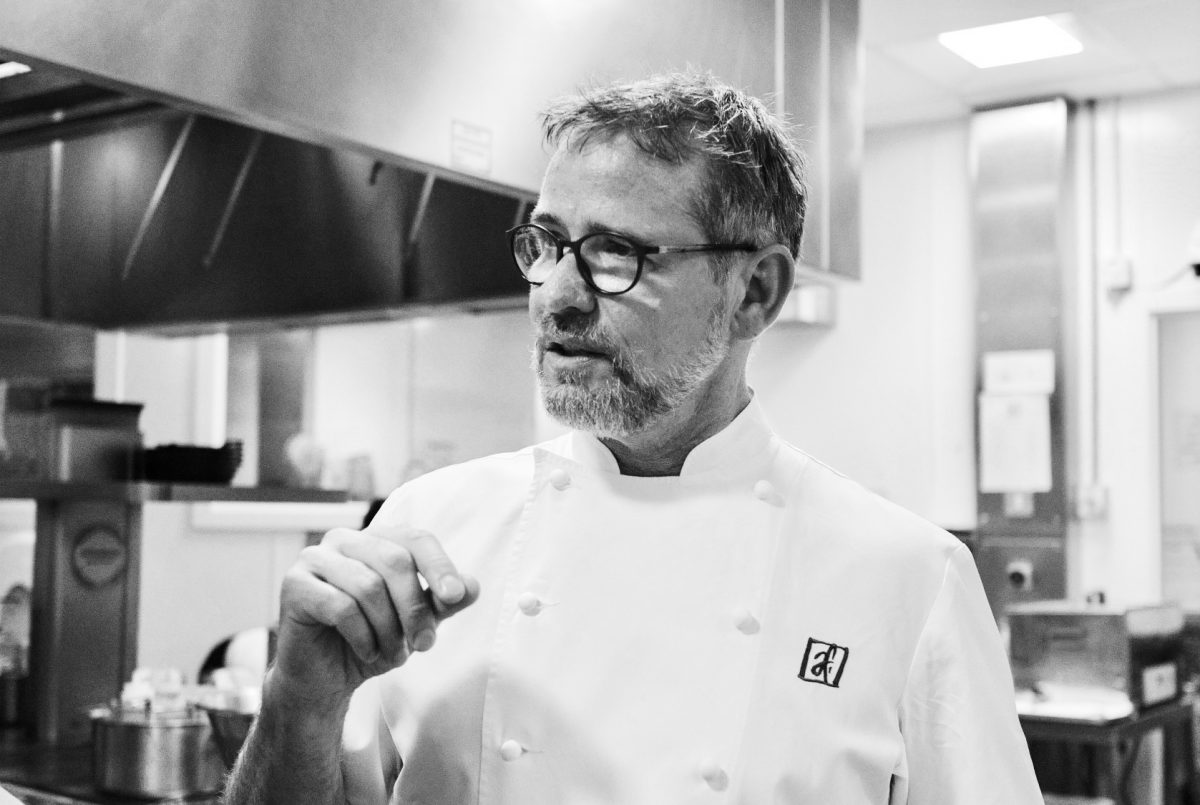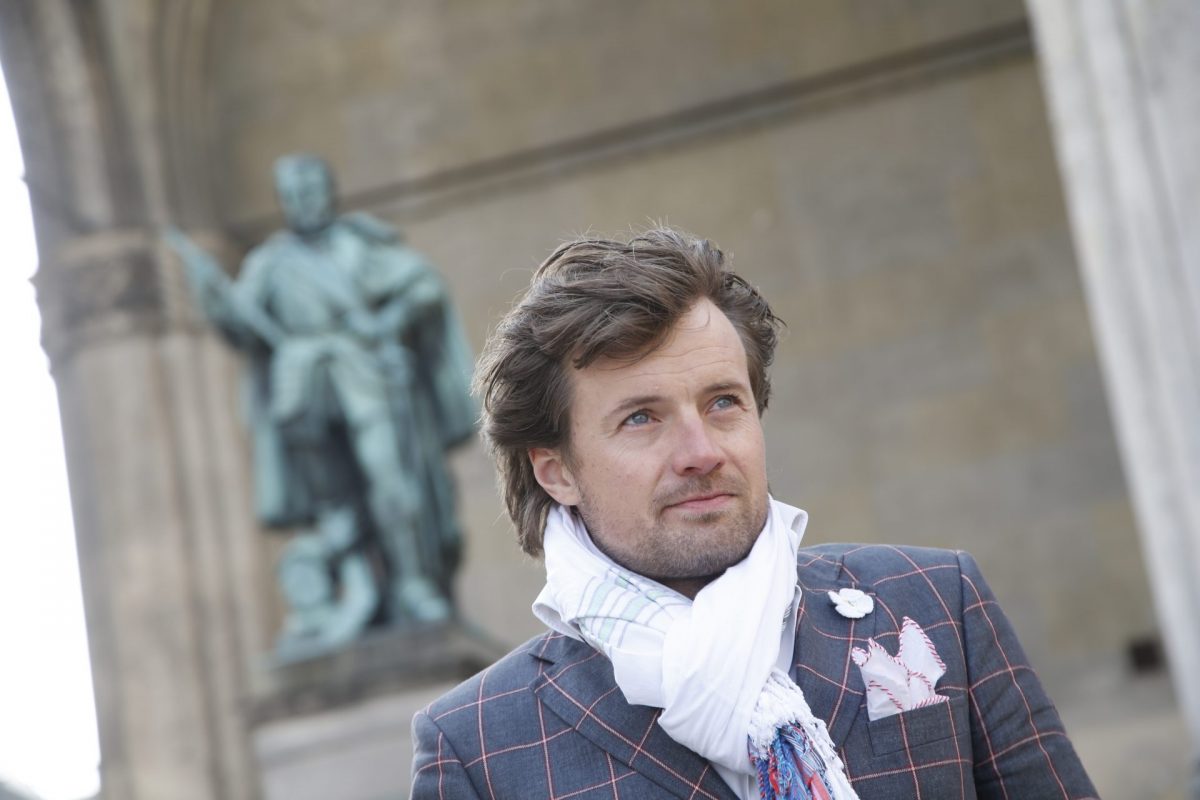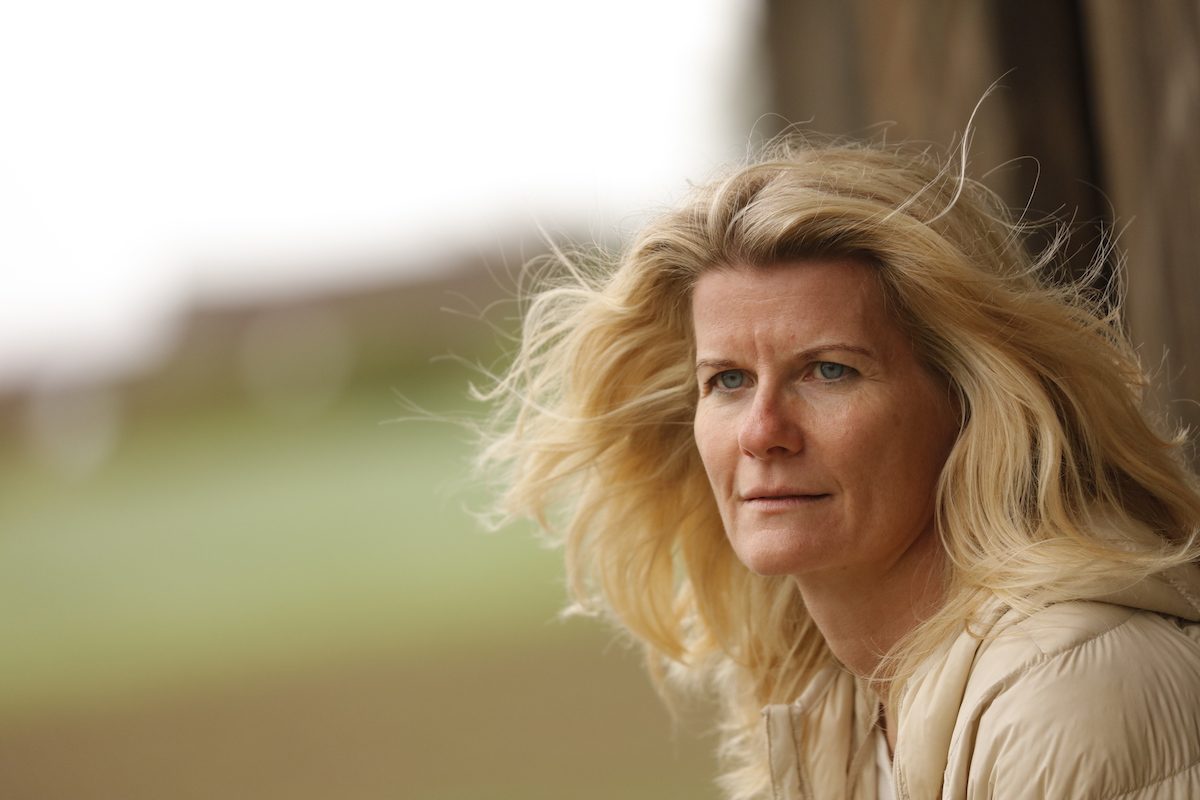
“I never felt the need to blame anyone.” Priska Ming
She suffered two miscarriages, lost a baby immediately after giving birth, and one of her three sons was born with Down syndrome. And yet, despite all this, Priska Ming, 49, believes that everything happens for a reason.
We’ve known each other for many years. Priska Ming was the playgroup leader for my two youngest children. A gentle yet energetic woman, empathetic yet firm. I liked her immediately. I think all the mothers liked her, and the children definitely did.
But underneath her caring exterior, the tall, blond woman was shouldering a large burden. A burden that was not apparent at first glance. From time to time, you could see sadness in her eyes – perhaps this was the only sign of something else behind her friendly demeanor.
Years later, I found out why. The fact that she never lost her optimism, even after so many misfortunes, caught my interest. I asked her if I could interview her.
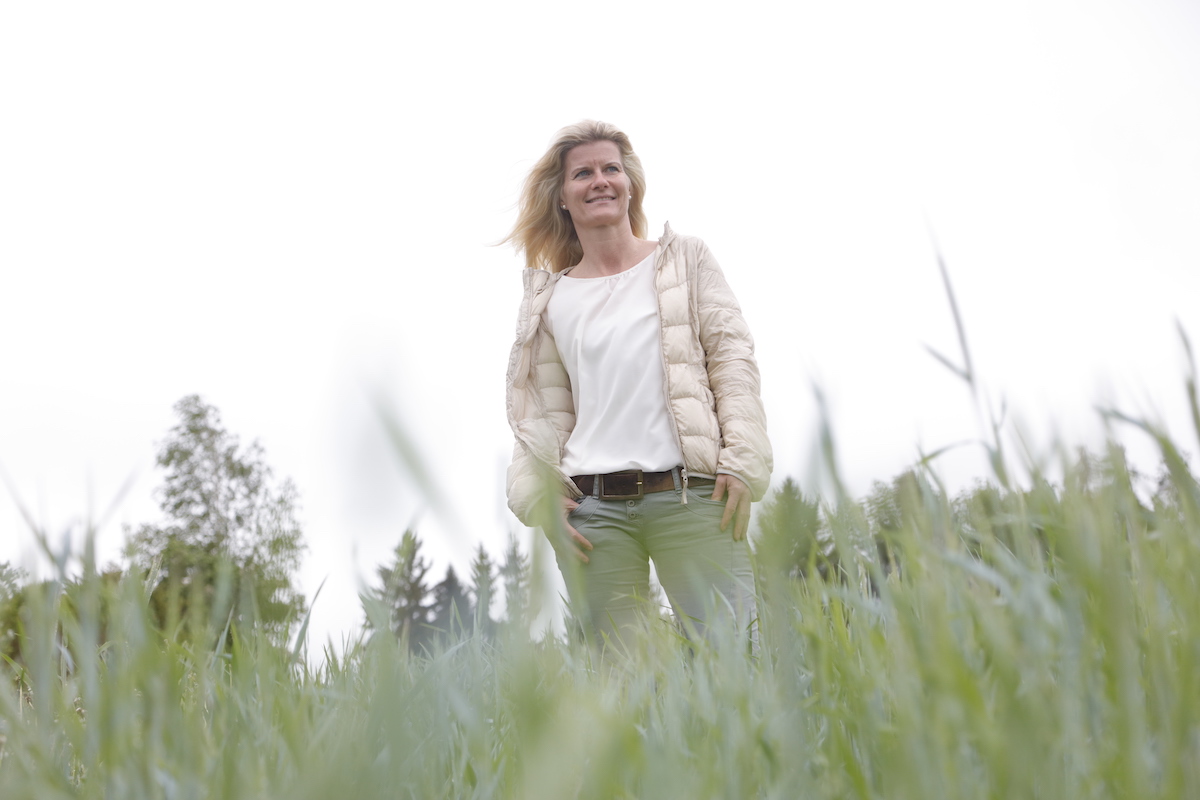 “At that time, in my social circle, you only got married if you wanted children.”
“At that time, in my social circle, you only got married if you wanted children.”
Anna Maier: When you look back on your life today, at 49, what were the moments that changed it forever?
Priska Ming: There have been many. The first, enormous change was definitely the birth of my first son, Noah. Especially because I had suffered a miscarriage before.
Up to that point, I had always assumed that I would have no problem having children, even despite the stories I had heard. For that reason, the birth of my son Noah was a major milestone. I was 30 when he was born.
You had suffered a miscarriage before that, an early one?
At three months.
How did you handle that?
Quite well, really, because I knew that nearly 30% of pregnant women experience this kind of early miscarriage.
The outside pressure was a much bigger issue for me back then. At that time, in my social circle, you only got married if you wanted children. I thought I could stop taking the pill and get pregnant, but it just didn’t happen. It took ages for me to get pregnant, and when I finally did, I suffered a miscarriage.
We wanted children so badly! It was terrible. For that reason, we were even more overjoyed when we found out I was pregnant with Noah.
The pregnancy went smoothly, Noah was born healthy.
Thank God. I was worried that it would take a long time for me to get pregnant again, so we started trying shortly after Noah was born. And again, I lost a child at three months.
I was at the doctor and they couldn’t find a heartbeat, but he said it was possible that they just couldn’t pick it up on that day. Two days later, there was still no heartbeat. Then the doctor told me that my child was gone and that I would need a D&C procedure. I didn’t need one the first time. For that reason, the second miscarriage was much more difficult for me emotionally.
“I struggled. But I didn’t let my thoughts drag me down.”
At this point you had lost two children. What was going through your mind?
The second miscarriage was very different because I needed a D&C. I had to go to the hospital and they said they would examine “it.” That was just the most horrible thought. The idea of seeing something so small, almost nothing, on the cutting board. Tough.
The images in your head were the hardest part?
Yes, exactly. And yet, even though it weighed on my mind, I didn’t fall into a pit of despair. Although I did have moments when I thought: “Why is this happening to me again?”
I have nine siblings, half of my sisters had already had children and, to my knowledge, not one of them had suffered a single miscarriage. Some didn’t want to have a child and still got pregnant anyway. Then you start to ask yourself: Why is this happening to me of all people – someone who chose to work with children, whose entire life revolves around children?
I struggled. But I didn’t let my thoughts drag me down. I also knew that I’d had Noah after one miscarriage.
You thought, let’s just try again, because it worked the first time?
Yes. And shortly thereafter, I was pregnant with Nathanael. Everything was normal until the 20th week. I stopped feeling the baby moving, so I went to the doctor. He didn’t know what the problem was and thought maybe the umbilical cord had wrapped itself around the baby’s neck, so he sent me to the hospital so they could check. Everything seemed fine. And yet they kept me there for a week for further tests.
During this time, they determined that the baby had fluid in its lungs and skin. The chief physician sent me home with the diagnosis that my baby wouldn’t survive the next two or three days.
But the baby didn’t die. That was in October, and Nathanael was delivered on December 26.
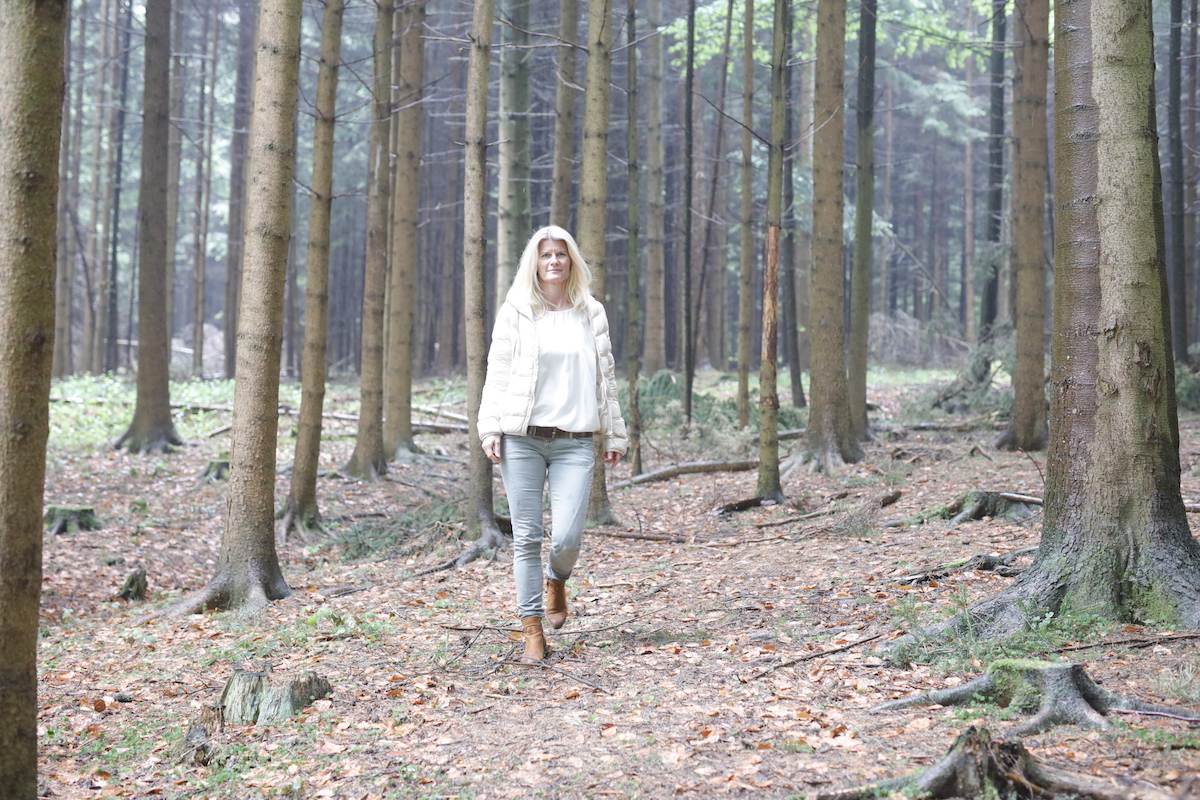 “We were hoping for an 80/20 chance, not 50/50.”
“We were hoping for an 80/20 chance, not 50/50.”
The doctors’ predictions didn’t come true. Two months later, the birth was approaching. What were you going through during this time?
We took it day by day. We had no other choice. On December 26, I was having contractions and, because the situation was precarious, I was supposed to drive to Zurich to give birth. But the weather did not permit it.
So we drove to the closest regional hospital. Nathanael was in the breech position, they couldn’t stop the contractions. They had to perform an emergency C-section.
After he was born, after they cut the umbilical cord, that’s when he died because he had too much fluid in his lungs and couldn’t breathe on his own.
You knew that Nathanael’s chances of survival were slim. Were you nevertheless hopeful that he would make it?
My doctor was interested in the case, so he did some research and found out that around two children are born with this condition in Switzerland every year. The chances of survival were 50/50. It depends how much fluid the baby has in its body, and what the hospital is able to do immediately after birth. Theoretically, it is possible to drain the fluid, and then the baby would have a normal chance of survival.
We were hoping for an 80/20 chance that it would work out, not 50/50. We were very positive. But, of course, in the backs of our minds, we knew that might not be the case.
How much did you struggle with the fact that you couldn’t get to Zurich because of the snow, and that these external conditions might have been one of the reasons that your baby died so quickly?
The neonatal team actually came to our hospital from Zurich, they arrived five minutes after the birth. I don’t know if these five minutes would have made a difference. But I didn’t struggle with that fact. I just accepted it. It is what it is. I never felt the need to blame anyone, or think: “We should have waited, the doctors shouldn’t have done the C-section…” or anything like that. Not at all.
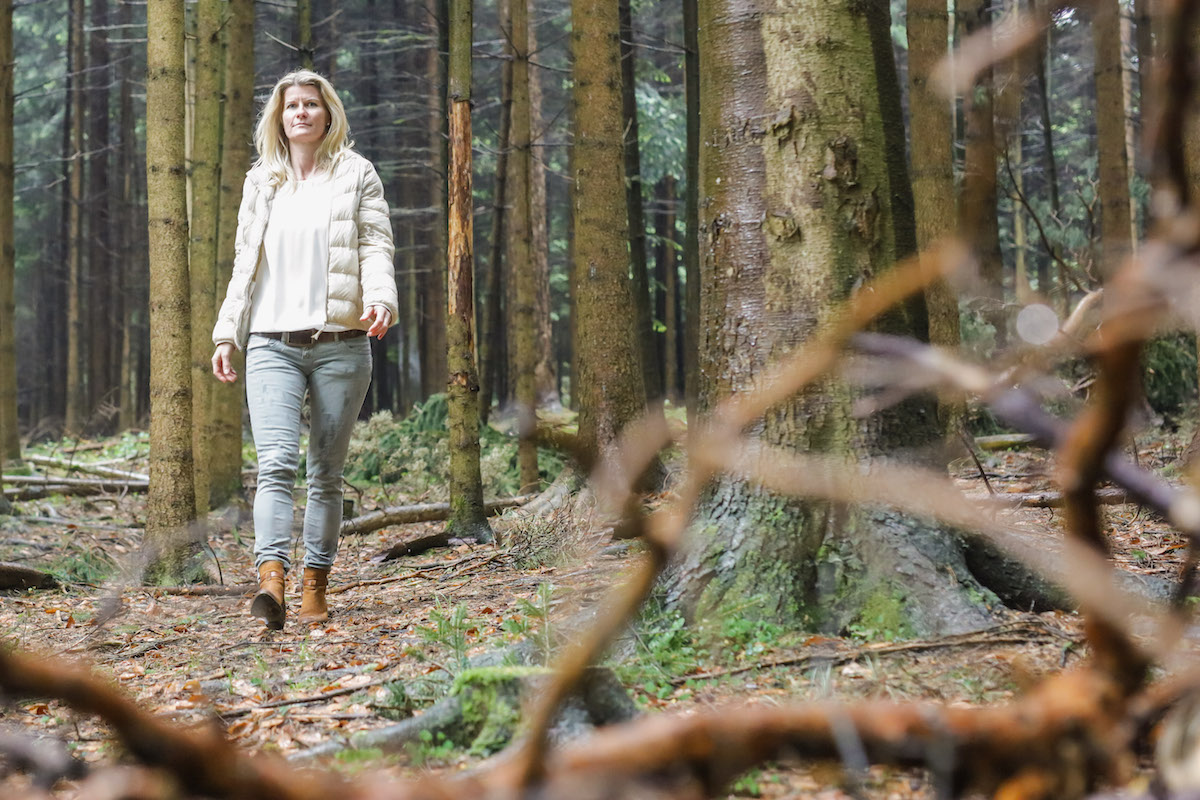 “She’s no longer pregnant. What do I say?”
“She’s no longer pregnant. What do I say?”
At home, you had everything all ready for the newest member of the family, but you had to return without your baby. What was that like?
It was extremely difficult. Especially because I had undergone an emergency C-section. I had a scar, I had been cut open, for what felt like “nothing”. I had to learn to cope with that.
Of course, I asked myself over and over again what the point of it all was. To this day, I still don’t know why Nathanael died. It just happened.
The fact that Nathanael was born and died at Christmas made it especially hard. Noah was two years old and we wanted to be happy at Christmas for him. However, it was also very important for me to talk about it and not to keep anything a secret.
At the time, we also had to decide how we would handle the situation with our friends and family. Do we send out a birth announcement, do we send out a death announcement? We ended up combining the two and sending out a card that said that Nathanael had been born and lived for a short time. Designing this card – my husband wrote the text, I glued stars on it while I was in the hospital – was certainly part of the grieving process.
I have often heard that men tend to block things out and don’t like talking about their feelings. I was lucky that we both felt the need to talk about what we were going through.
How was it outside of your immediate family? Were you able to talk to others about it as well? I often hear from people who are grieving that at some point, someone asks them: “Don’t you think it’s time to move on?” Did you experience that as well?
Yes, some people said that to me. But many people felt uncomfortable even asking us about it. That was a reason why we decided to make the card, so that everyone would know what was going on. Not that they would see me and think: “She’s no longer pregnant. What do I say?”
A lot of people are uncomfortable asking about something so personal. Because then you run the risk of being confronted with a topic that you don’t want to talk about. In this kind of situation, you have to be prepared for the fact that people will be honest. I estimated what and how much I could say to which people.
At this point, you had been pregnant four times and only one child had survived. How much courage did it take to try again?
I always really wanted to have four children. And I didn’t want Noah to grow up as an only child. The desire to have more children simply won out. So I remained optimistic.
Some parents who have gone through this say that getting pregnant again as quickly as possible helps the healing process; others need a longer time to grieve. How was it for you?
Given the fact that it always took me a long time to get pregnant, we wanted to start trying again quickly and we only waited three months. Surprisingly, however, I got pregnant immediately. I asked myself if it might have had something to do with the fact that we were very open about our grief. We stayed optimistic and never stopped believing that we could have another child.
Did you do anything else to try to figure out why three out of your four pregnancies went the way they did?
No. I put my trust in the fact that everything happens for a reason. I had a very good doctor; it was extremely important for me to feel that I was receiving good care and being taken seriously. He was always very open when it came to the complications that occurred during my pregnancies. I trusted him implicitly. If I’d had a different doctor at my side, I might not have had the courage to simply try again to have another baby.
You got pregnant very quickly. What was different about this pregnancy?
Nathanael’s diagnosis raised the question of whether we should do some screenings. But my fear of a miscarriage was greater than my need for reassurance that my baby was healthy. For that reason, we didn’t do any tests. Naturally, my gynecologist performed thorough ultrasound examinations because I was considered a high-risk pregnancy. I got an ultrasound every month. Everything was going great. I even remember that my doctor told me in the 12th week that our baby’s nuchal fold looked normal, and that we could essentially rule out any chance of trisomy 21. It looked like my baby was healthy.
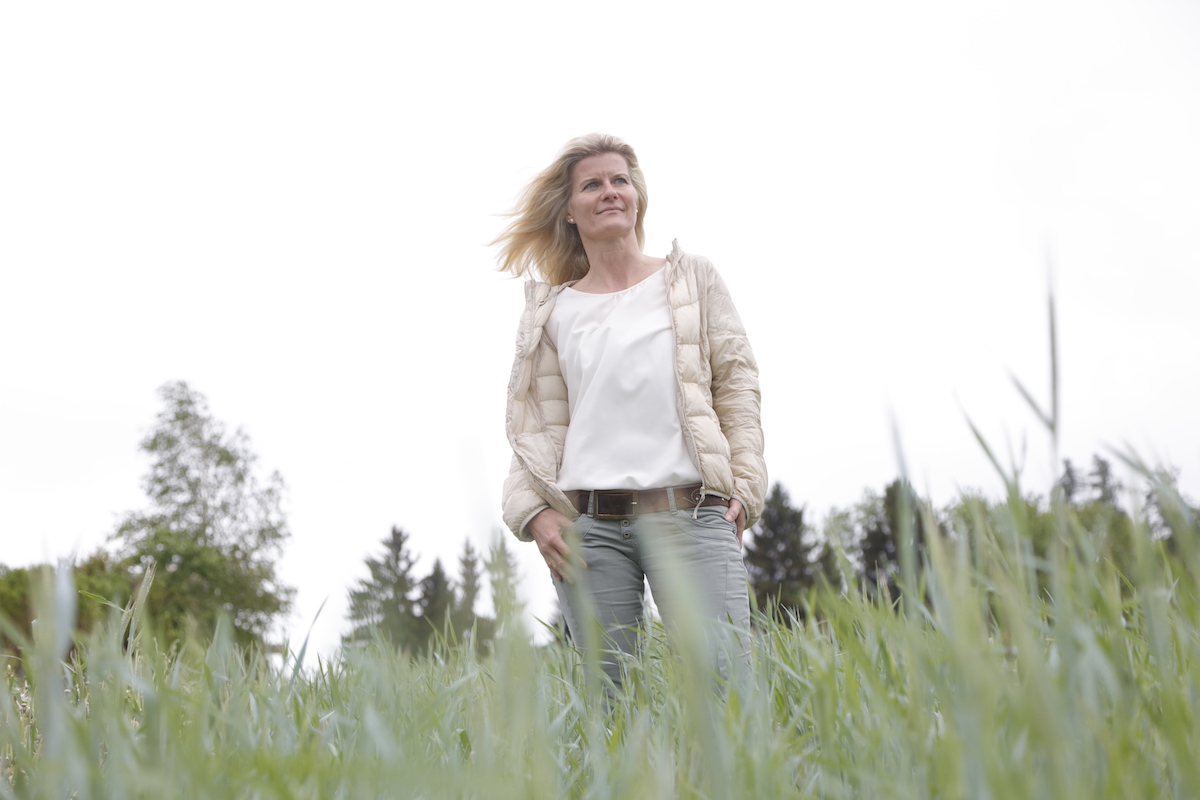 “The love I felt did not change, but suddenly I was overcome with fear.”
“The love I felt did not change, but suddenly I was overcome with fear.”
Eliah was born with a mild form of trisomy 21. When did you first notice it?
No one noticed it during the birth. They placed him in my arms and said he was healthy. The tests also all came back normal. We were completely overjoyed.
He was born at 8 am. At 4 pm – my husband had gone home to get Noah, our first-born son – the nurse came in and said that Eliah’s skin was discolored and that the doctors would have to take a closer look. It turned out that he had a problem with oxygen saturation. After they examined him, the pediatrician told us that he suspected trisomy 21.
You give birth and everything seems fine and then, just a few hours later, you find out that your baby could have Down syndrome. What was going through your head?
I was completely shocked. Of course, I knew that the nuchal fold measurement on its own isn’t conclusive. The pediatrician also told me that she knew someone who did all the different tests, and they all said that her unborn child would have trisomy 21, but when it was born, it was fine.
Well, I was truly shocked. There were so many reasons why: for example, the way in which both the pediatrician and the chief physician confronted me with the diagnosis while I was all alone – without my husband at my side – and then began interrogating me about why I hadn’t done any tests, given Nathanael’s fate just a year earlier. I felt like they were blaming me for what happened.
The feelings and the love I had for Eliah did not change, but suddenly I was overcome with fear. The fear of how my friends and family would react, what the diagnosis would mean for me; I had to be there for my child for the rest of his life, even when he was an adult. I would have to fight, in more ways than one. It terrified me.
I should also mention that originally, my husband didn’t want to have children because he was afraid of having a child with special needs.
So now I was sitting in my hospital bed, alone, with this diagnosis, and I wasn’t just afraid of how my friends and family would react, but also about how my husband would handle this situation.
How did you break the news to him?
I don’t remember exactly, but I think I called him to say that he needed to come back to the hospital as quickly as possible.
He came back that evening with Noah and I didn’t have the baby with me. That was also difficult for Noah. One year ago, I had a big belly, but he never saw a baby. Then I had a big belly again, but when he visited me in the hospital, there was once again no baby. He took it really hard.
At the same time, I had to tell my husband everything.
What did you do?
It was a difficult moment. I told him that our son was not there because he had to be taken to the children’s hospital for further tests. I was so nervous because I had no idea how he would react. Then he sat down next to me and said that he was our son, and no diagnosis could change that. It was a huge relief that he took the news so well. This moment really allayed my fears and calmed me down.
After that, we waited four days for the diagnosis. We received it on December 24 – Eliah was born on December 19.
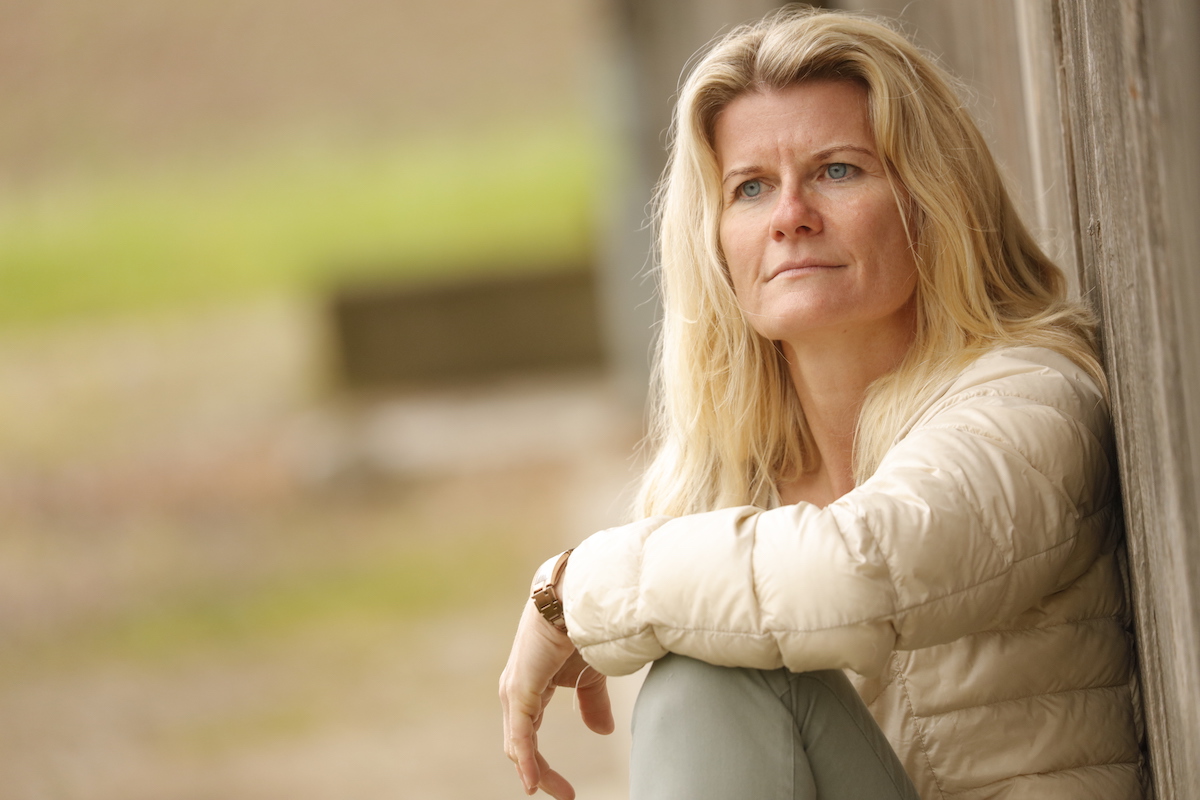 “It was always important to us that our son is simply Eliah and not ‘Eliah who has Down syndrome’.”
“It was always important to us that our son is simply Eliah and not ‘Eliah who has Down syndrome’.”
Once again, this was all happening over Christmas.
Then the doctors listed all the problems we could expect to deal with: he was likely to get a lot of middle ear infections, he would get sick, he could have leukemia – but, nowadays, “you can do a lot with cute clothes”, they said. I found that sentence so horrible. We just sat there, totally lost.
But throughout my life, I’ve always somehow managed to find people who gave me strength. We had a great pediatrician who had a brother with Down syndrome. She told us how she had felt as a child: Her parents told her that he was different, but she and her sister undressed the little guy every day and never saw anything “different” about him. I thought that was a lovely story. It was always important to us that our son is simply Eliah and not “Eliah who has Down syndrome”.
Did you just wait until someone asked about it?
We talked about this many times, also with the pediatrician. In the end, we decided that we would give people the chance to get to know Eliah simply as Eliah. Only my parents knew about it, and his godmothers – but no one else knew at first. It was very special, no one ever said anything. No one asked any questions.
When I think back on that time now and look at Eliah’s baby pictures, I have to say: Eliah was just like any other baby. By and large, his development was normal. Other than the fact that he took a bit longer to be able to hold his head up, which meant that he couldn’t sit up on his own as quickly as other babies. And he didn’t start walking until 18 to 20 months, which is also still completely normal.
After three months, our pediatrician tested him again because she thought that the diagnosis somehow didn’t match Eliah’s development. But the diagnosis remained the same. They always told us that it was a mild form of Down syndrome. On the one hand, that’s clearly a good thing, but I always felt strange saying that. It seemed to me like I was trying to… how would you say it?
Justify it?
Yes, and play it down. One of my sisters told me that I should come to terms with the fact that he is disabled. I said to her: “I know that. I’ve seen the diagnosis.” But it was important to us to stress the fact that he was a person, not a disability.
We have received and continue to receive feedback from doctors, from early childhood educators, and even now – after 10 years of working with him – from a speech therapist, that Eliah would never have come this far if he hadn’t received this kind of upbringing and love from us; that he is Eliah and not “Eliah with Down syndrome”.
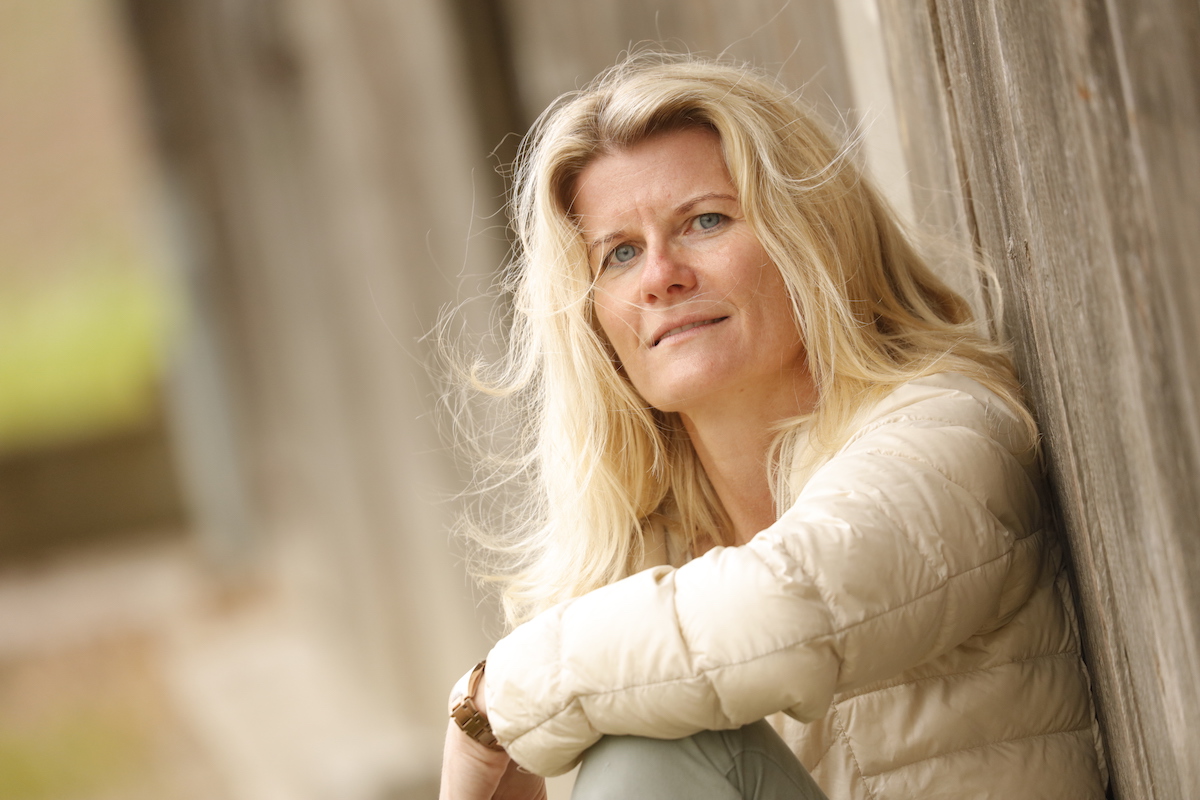 “I think the schools need to be more open.”
“I think the schools need to be more open.”
When did you have to start fighting? When was the first time you found yourself up against a wall and had to really assert yourself?
When Eliah was in kindergarten and we wanted to enroll him in elementary school. Kindergarten was really not a problem. We had an older, retired special needs teacher who looked after him. She felt that he should be integrated into a normal school. That was when the nightmare began and we really had to fight.
The canton had voted yes to inclusive schooling, which means they would have needed to enroll Eliah in a mainstream school. Our local school had also agreed to take him. But then the school board turned him down for reasons that, to us, were really flimsy. So we took the matter to the regional school board. They also turned us down, namely on the Friday before the end of summer break. Just a few days later, that following Monday, Eliah had to go to a school for children with special needs. He had no idea.
What reason did they give you?
They claimed that they based their decision on the fact that the school board had rejected us, as well as on an evaluation from the school psychologist who had seen him for an hour or two and had come to a conclusion based on that meeting.
Do you think it would have been possible for him to succeed at a normal school?
I think so. For us, it was more about giving him a chance and trying it out. We knew from the start that if the teachers or the other students had a problem with it, then we would have rethought it. We would have taken him out of the school.
In your opinion, what was the main reason that the “inclusive school system” didn’t work?
I think that the school was right to be a bit nervous about how to handle the situation, about whether they could meet the needs of a child with Down syndrome as well as the needs of all the other students. I’m sure that the decision wasn’t malicious in any way; rather, I think they were taking the situation seriously and were worried. Nevertheless, I think the schools need to be more open.
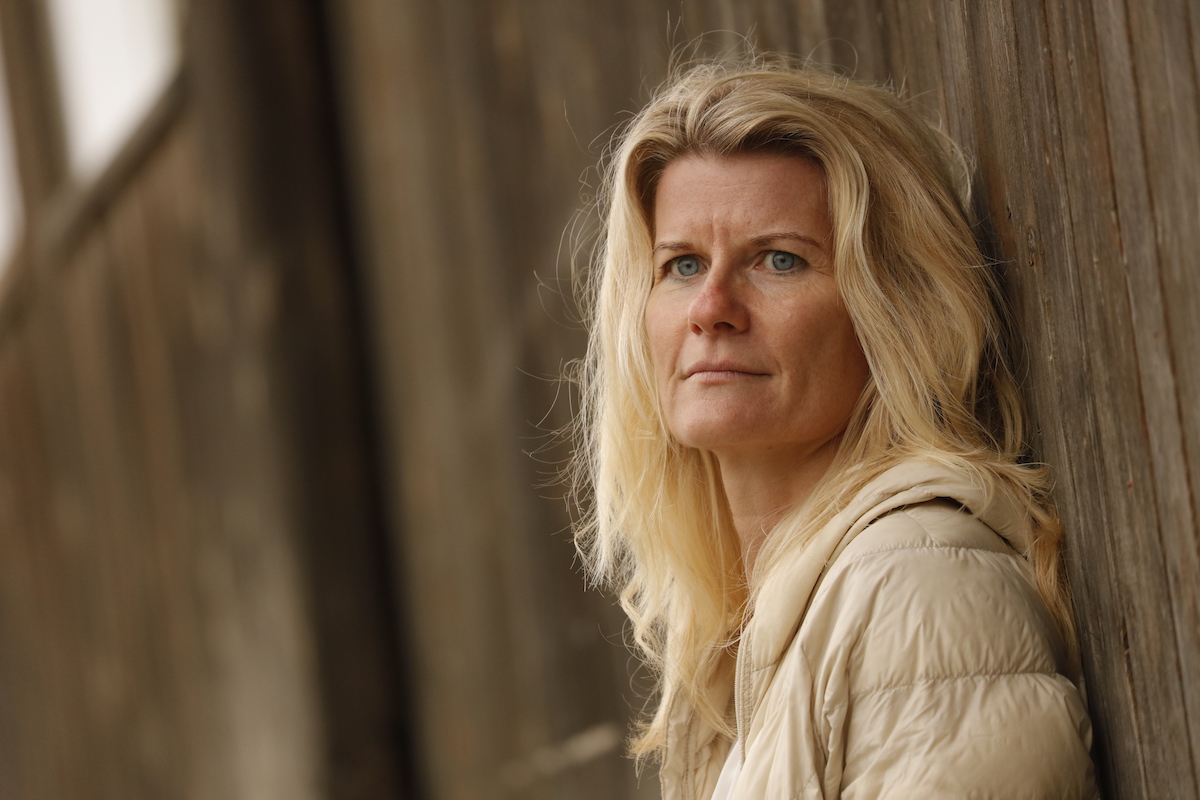 “His hair was falling out in clumps.”
“His hair was falling out in clumps.”
So, there was a last-minute change right before his first day of school. Eliah did not go to the same school as his friends from kindergarten. He went to a different school where he had to start from scratch. How did that go?
The first two years went fine. Eliah is friendly and easy-going and he embraced his new school. He had good teachers who quickly noticed that he was able to do more than some of the other kids, that he has a mild form of Down syndrome.
At the beginning, together with his teacher, we pushed for at least partial integration at our local school. After we were rejected once again, I gave up. I needed a bit of space so I could recharge my batteries. But the teacher wanted to try again. So we made another attempt, but we failed yet again.
After two years, Eliah was put in a class with a teacher who was pretty stuck in her ways. I had the feeling that Eliah wasn’t being challenged anymore, but rather was being stifled. But he was so motivated. We tried to encourage his participation in our local youth gymnastic team and with his drum lessons in the hopes that the school issue would fade into the background.
After that particular school year, Eliah began losing his hair. It was falling out in clumps, so we needed to have him checked out. I went to a psychologist with him for a full month. He felt that the reason for the hair loss was that Eliah was not being sufficiently challenged. The school, on the other hand, took the exact opposite view, namely that Eliah was being overloaded. That as parents, we expected too much of him.
At the doctors’ suggestion, we took him out of this school and picked up the fight all over again. Ultimately, I found a private school to be the only option because, at this point, there was no way that he would be accepted into the mainstream school where we lived.
Is the private school a special school for children with disabilities?
No, it’s a “normal” private school. The difference is that we have to pay for it ourselves in full.
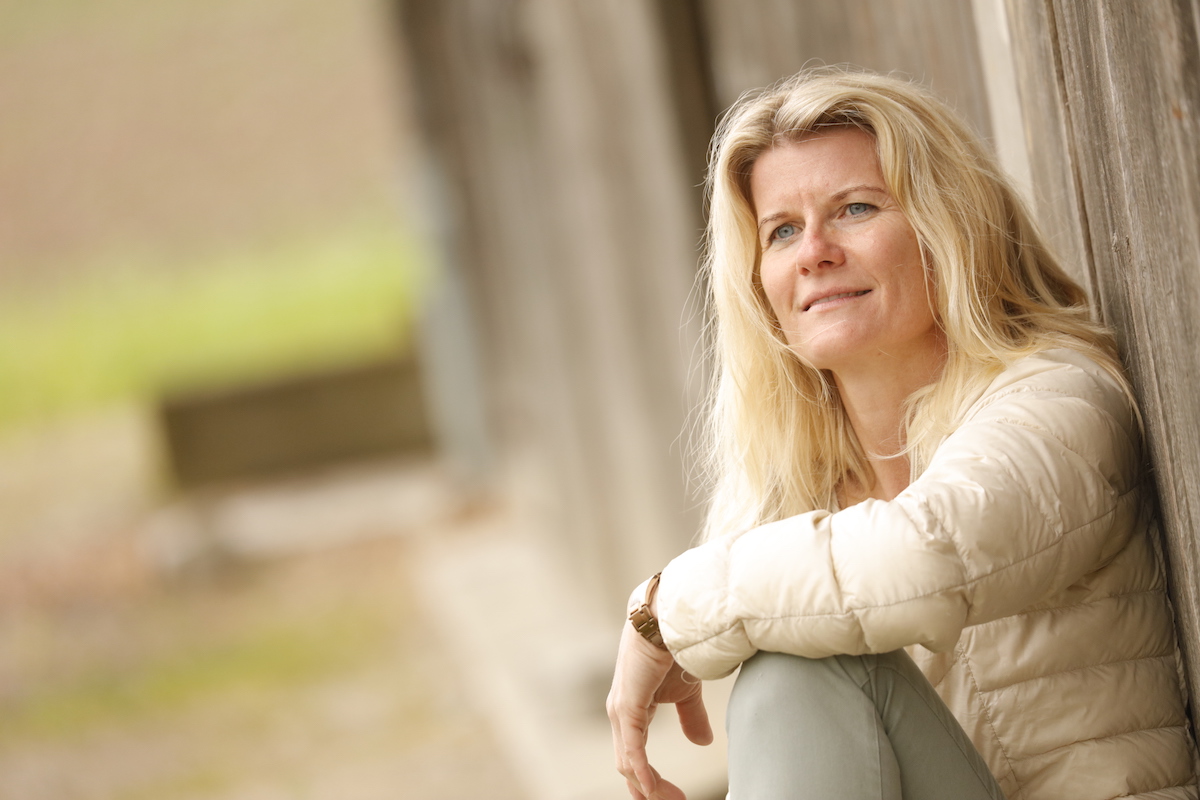 “We hope that one day he will be able to live on his own.”
“We hope that one day he will be able to live on his own.”
How did you manage it financially?
We’ve had to cut back on some things. But I just worked more hours, and we adjusted our budget accordingly. It was always important to me and my husband that our other two children would not miss out on anything just because Eliah went to private school. With more work and careful budgeting, it was and is possible, even though you do have to cut back.
Last December, Eliah underwent some tests including an IQ test. His IQ was in – what they call – the “normal range,” simply in the below-average classification, which apparently is very rare for children with Down syndrome. This once again confirmed to us that this school is right for him. We hope that he will have a normal education, and that one day he will be able to live on his own.
How do you envision his future? What do you think he will do with his life?
I hope that he will find an apprenticeship. He loves animals and likes being around people. Something practical, where he can work outdoors with his hands. That would be great.
You said that you hope that he can live on his own one day. How realistic is that?
Realistic. Right now, he goes to a school that was founded, among other things, for a boy who has Down syndrome. That boy is now a young man and he lives on his own, has his own apartment, a job; he even completed more than one apprenticeship, and he has a girlfriend whom he lives with and who also has Down syndrome. I know that Eliah can also have a life like that.
Of course, he will always need some kind of support, especially in financial terms. But even today, he is already very independent. He goes to school on his own, uses public transportation.
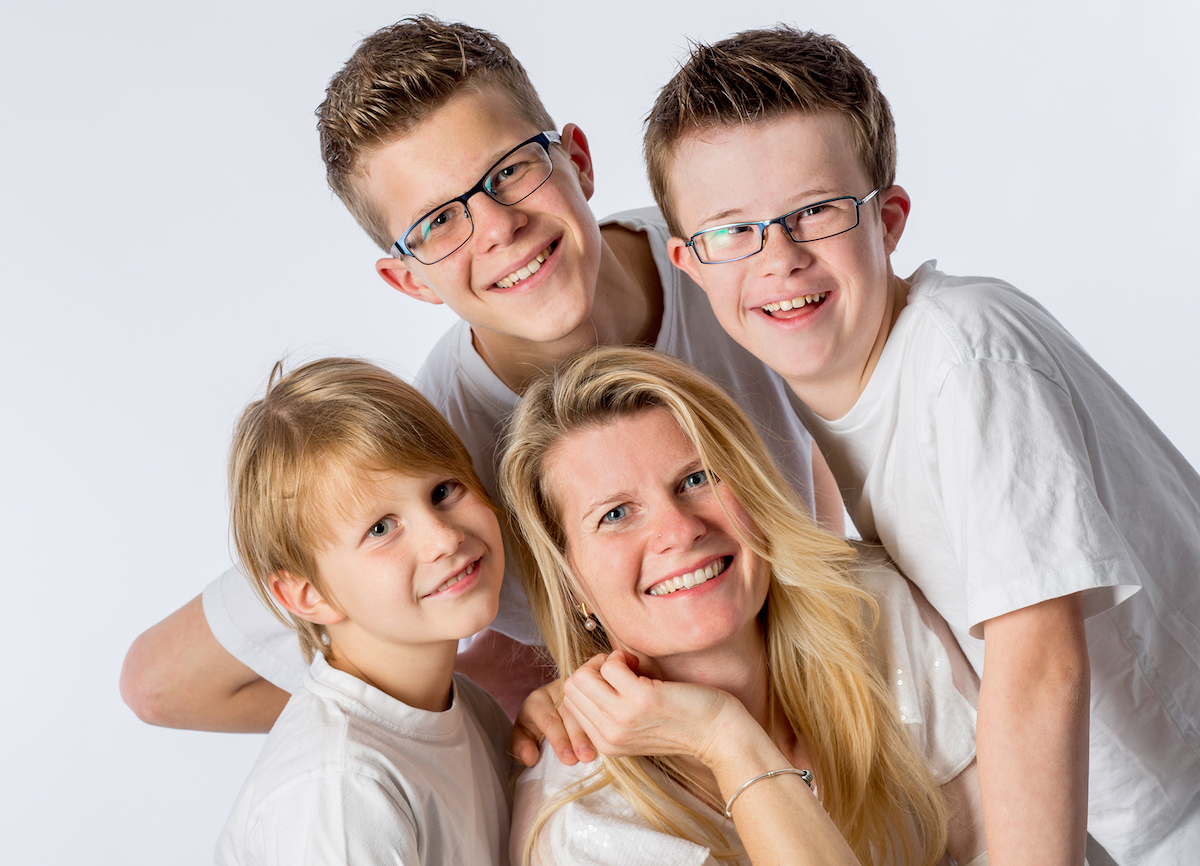
Priska Ming with her sons Jonah, Noah, and Eliah. (Photo: Antonio Arcuti)
“I’m not looking for sympathy, but a bit of encouragement now and then would be nice.”
What were the most painful aspects of the last 15 years?
Definitely the fact that he never had the chance to go to a “normal school.” Or when someone asks me how things are going with Eliah and, on occasion, I admit that it’s difficult and that I am worried about the fact that I have to ask about apprenticeships at so many businesses, and then the person responds by saying: “It will all work out.” I really can’t hear those words anymore.
People say it without thinking, and of course they don’t mean any harm, but when I hear that phrase, it feels like some people don’t ever consider what it might be like to live with a child with disabilities.
Or, for example, when he was born – the doctor compared Eliah’s disability with his son, who had broken his arm or his leg. There’s no comparison. I’m not looking for sympathy, but a bit of encouragement now and then would be nice.
When people told us that Eliah would not be where he is today if we hadn’t raised him the way we did – I had a hard time accepting that compliment for a long time. Today, these words give me strength.
After Eliah, you had another baby, Jonah, a healthy boy. Did anyone ever say: “Priska, why are you tempting fate again?”
A few. Remarkably few, actually. Back then, more people said: “You’re trying for a girl, aren’t you?” My husband said to me: “We have two children. That’s enough.” Then we had a lot of discussions until I found out that he was worried about my health. He was scared that I wouldn’t be able to handle another stroke of fate. So we waited a bit – we wanted to see how things would go with Eliah and then decide if we were capable of taking on any more responsibility. But our friends and family didn’t really have anything negative to say because things went so well with Eliah.
In hindsight, I am so happy that we have Jonah. It was truly meant to be. If we didn’t have him, something would be missing. Since I didn’t know what would happen with Eliah, I wanted for our oldest son Noah to have another brother or sister so that he wouldn’t be the only one responsible for Eliah when we were no longer around. This thought played a major role in my decision to have another child, even though Eliah is also a great brother. I love seeing the three of them together.
I also have three children and, in my experience, they all need a lot of individual attention – do you ever feel that your attention is distributed unevenly?
That was another important reason why I wanted to have another child, so that my attention wasn’t solely focused on Eliah, because a baby naturally demands your attention.
I believe that I have been able to split my attention more or less equally between my three children. And Noah was really easy-going about everything. We just tried to do certain activities separately, for example going to the movies alone with Noah.
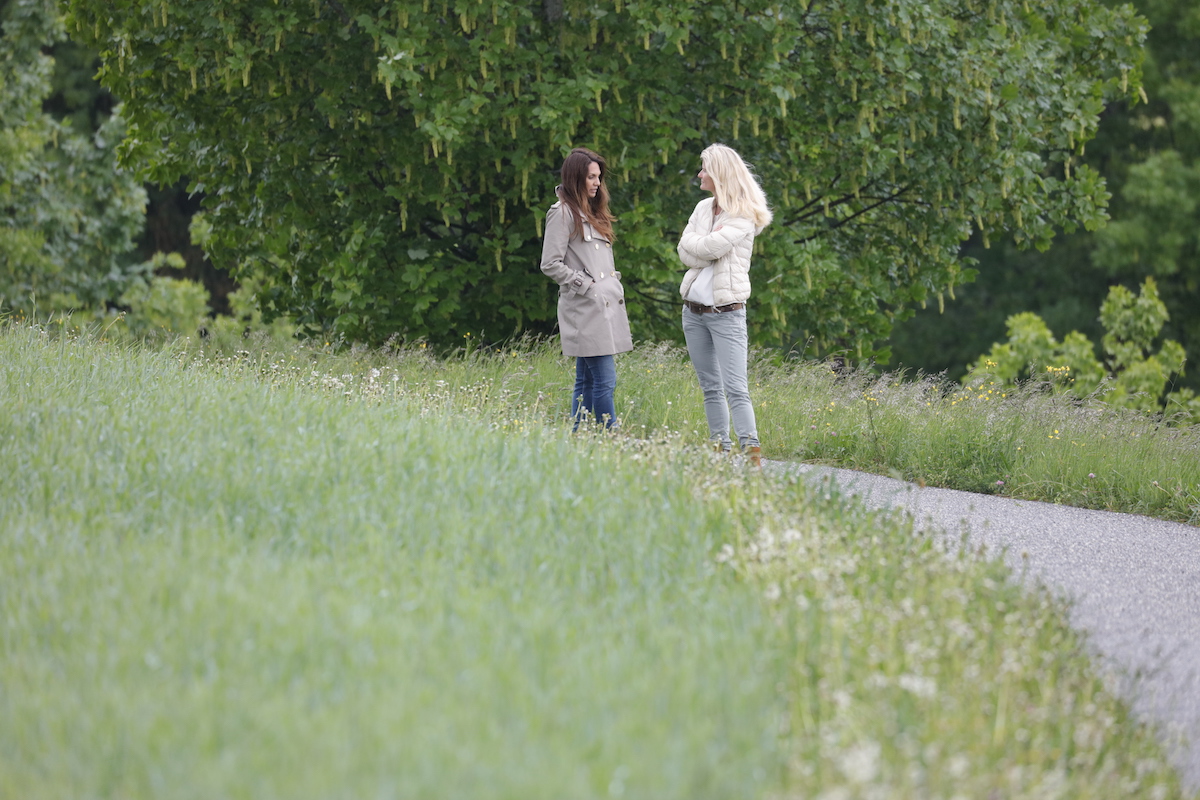
Priska Ming in conversation with Anna Maier (Photo: Jessica Kassner)
“This is my purpose and I have to see it through.”
When you look back now, with 15 years of experience, were your reservations and fears after Eliah’s birth justified?
They were definitely justified, and at times, things were much worse than we had even imagined. When Eliah was little, everything seemed relatively straightforward. When he was in kindergarten and elementary school, my fears were practically nonexistent. And since he’s been at the private school, everything has been pretty easy, and I’ve been able to take a little breather. But now the pressure is on: finding a career for him is a huge step. It is something that keeps me up at night.
What would you like to say to other parents of children with Down syndrome?
I would like to say to them what we have always said to ourselves: Down syndrome does not have to define your child. We asked more or less the same of Eliah as we did from our other two sons. Accepting your child for who they are – this very simple approach is an enormous help. Challenge and encourage them when necessary. It’s worth it.
But you would also agree that living with a child with disabilities requires a great deal of energy and strength on the part of the parents, right?
Yes, that’s true. Someone once said to me: “You simply get through it.” But there’s nothing “simple” about it. Sometimes I struggled. But at the same time, other families have their own problems. That’s just how it is. You don’t ask “Why me?” You just have to try to make the best out of your situation and decide for yourself what the “best” looks like for the whole family. For example, one of my sisters said that, in her opinion, it wasn’t necessary for us to send Eliah to private school. But we are his parents, we know Eliah better than anyone, and we felt that this was the best option for us in that moment.
What helped you the most?
My marriage, although it also suffered from time to time, and my close friends, the people around me.
Are you religious?
I believe in God, yes, and I also believe that everything is controlled by a higher power. Someone once told me that I was chosen for this life because I can endure it. That also inspires me sometimes. This is my purpose and I have to see it through.
How have you changed?
Over the last 15 years, I have changed a great deal. From my thoughts all the way to my attitude towards life – for example, ever since Eliah was born, I have a very hard time with superficialities. Like those empty phrases that people throw around: “It will all work out!” or “Just wait and see.” From where I’m standing, it’s simply not true that everything will just “work out”.
You have to push hard. Almost constantly. This is something that I have experienced again and again. Not only in terms of Eliah, but also in terms of my marriage, my family, my circle of friends: Don’t just stick your head in the sand. Rise to the challenge. I think that, more than anything, my values have changed.
Writer: Anna Maier
Images: Jessica Kassner / Antonio Arcuti (family photo)
Newsletter
Subscribe to our newsletter and you'll get notified every time a new article is online.

